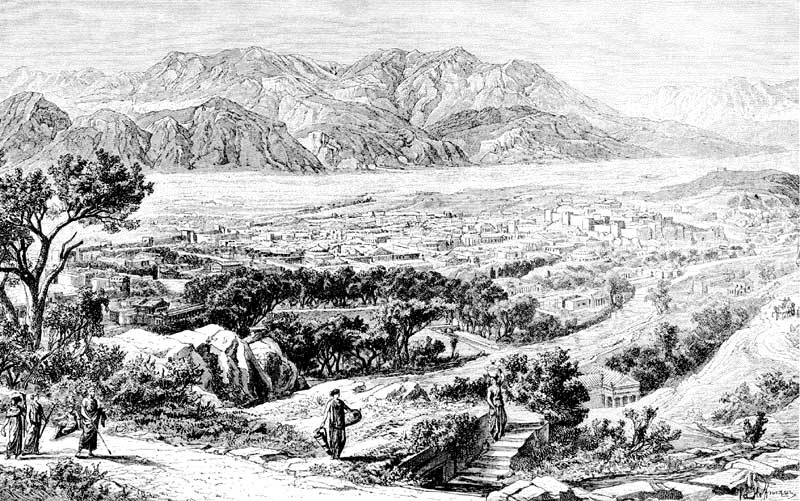Ancient Sparta

The Spartans suffered from the problem that afflicted all of Greece: a growing population with limited land for growth. While in most of Greece the solution was emigration, the Spartans instead decided to subdue their neighbors, the Messenians. The Messenians outnumbered the Spartans by 7 to 1, but this did not stop the Spartans from ultimately overpowering them. The Messenians became helots, bound to the land for the good of the Spartans. Eventually, the Messenians revolted. At great cost to the Spartans, this revolt was quashed. The Spartans reorganized their city-state into a military state. All males from the age of seven were brought up by the state to serve in the military until the age of 60. When a male child was born, the authorities determined whether it was strong enough to be a good warrior when grown; if not, it was left to die. Women were expected to exercise in order to be in peak health and bear healthy babies.
Sparta was ruled by two kings responsible for all military and foreign affairs. There was also an elected council of elders who placed issues to be voted on by an assembly composed of all males citizens.
Sparta limited contact with outsiders and did not support any cultural advances.
 >
>